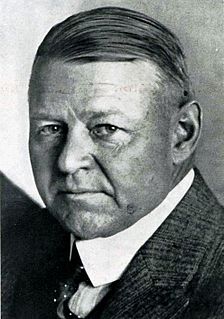A Quote by Richelle Mead
Christian's family lived under the shadow cast by his parents. They had purposely become Striogi, trading thier magic and mortality to become immortal and subsist on killing others. His parents were dead now, but that didn't stop people from not trusting him. They seemed to think he'd go Strigoi at any moment and take everyone else with him. His abrasiveness and dark sence of humor didn't really help things, either.
Related Quotes
Both Christian and Adrian had worried there would be some piece of Strigoi left in him, but their fears had been about violence and bloodshed. No one would have guessed this: that living as a Strigoi had hardened his heart, killing any chance of him loving anyone. Killing any chance of him loving me. And I was pretty sure that if that was the case, then part of me would die too.
His face set in grim determination, Richard slogged ahead, his fingers reaching up to touch the tooth under his shirt. Loneliness, deeper than he had never known, sagged his shoulders. All his friends were lost to him. He knew now that his life was not his own. It belonged to his duty, to his task. He was the Seeker. Nothing more. Nothing less. Not his own man, but a pawn to be used by others. A tool, same as his sword, to help others, that they might have the life he had only glimpsed for a twinkling. He was no different from the dark things in the boundary. A bringer of death.
There was a man that hated his footprints and his shadow, so one day he thought that if he ran fast enough, his footprints and shadow would not be able to follow him and then he never ever had to look at them again. He ran and he ran as fast as he could, but the shadow and the footprints had no problems keeping up to him. And he ran even faster and all of a sudden he fell dead to the ground. But if he been standing still there hadn't been any footprints and if he had been resting under a tree his shadow had been swallowed of the trees shadow.
All things are God's already; we can give him no right, by consecrating any, that he had not before, only we set it apart to his service - just as a gardener brings his master a basket of apricots, and presents them; his lord thanks him, and perhaps gives him something for his pains, and yet the apricots were as much his lord's before as now.
There were times when it appeared to Dorian Gray that the whole of history was merely the record of his own life, not as he had lived it in act and circumstand, but as his imagination had created it for him, as it had been in his brain and in his passions. He felt that he had known them all, those strange terrible figures that had passed across the stage of the world and made sin so marvellous, and evil so full of subtlety. It seemed to him that in some mysterious way their lives had been his own.
Average Jones had come by his nickname inevitably. His parents had foredoomed him to it when they furnished him with the initials A. V. R. E. as preface to his birthright of J for Jones. His character apparently justified the chance concomitance. He was, so to speak, a composite photograph of any thousand well-conditioned, clean-living Americans between the ages of twenty-five and thirty.
And still Meriadoc the hobbit stood there blinking through his tears, and no one spoke to him, indeed none seemed to heed him. He brushed away the tears, and stooped to pick up the green shield that Eowyn had given him, and he slung it at his back. Then he looked for his sword that he had let fall; for even as he struck his blow his arm was numbed, and now he could only use his left hand.
I finally knew... why Christ's prayer in the garden could not be granted. He had been seeded and birthed into human flesh. He was one of us. Once He had become mortal, He could not become immortal except by dying. That He prayed the prayer at all showed how human He was. That He knew it could not be granted showed his divinity; that He prayed it anyhow showed His mortality, His mortal love of life that His death made immortal.
As time passed and he grew to know people better, he began to think of himself as an extraordinary man, one set apart from his fellows. He wanted terribly to make his life a thing of great importance, and as he looked about at his fellow men and saw how like clods they lived it seemed to him that he could not bear to become also such a clod.
But television affords you, what you just described, to - over the course of 18 hours, now that we're doing a third season - tell the story of this man. You're not under any obligation, really, to do massive expositional stuff at the beginning. You're at liberty to say, "Come with us on this journey," and, gradually, you become aware of what his motivations are, what drives him, what his weaknesses are, what his strengths are. That's what I think's sucking people into these worlds, because it is kind of like a novel, you just go really, really deep.
The capitalists owned everything in the world, and everyone else was their slave. They owned all the land, all the houses, all the factories, and all the money. If anyone disobeyed them they could throw him into prison, or they could take his job away and starve him to death. When any ordinary person spoke to a capitalist he had to cringe and bow to him, and take off his cap and address him as 'Sir'
In short, I didn't become a Christian because God promised I would have an even happier life than I had as an atheist. He never promised any such thing. Indeed, following him would inevitably bring divine demotions in the eyes of the world. Rather, I became a Christian because the evidence was so compelling that Jesus really is the one-and-only Son of God who proved his divinity by rising from the dead. That meant following him was the most rational and logical step I could possibly take.
As a child, he had hardened his heart and learned to take their punches. He had learned to spit back and take down anyone who cast a jaundiced eye or who made a comment about either him, his mother, or his sister. He’d told himself that he didn’t need anyone’s love or caring. And so he had learned to live like a feral animal, always ready to strike out when someone tried to touch him.


































